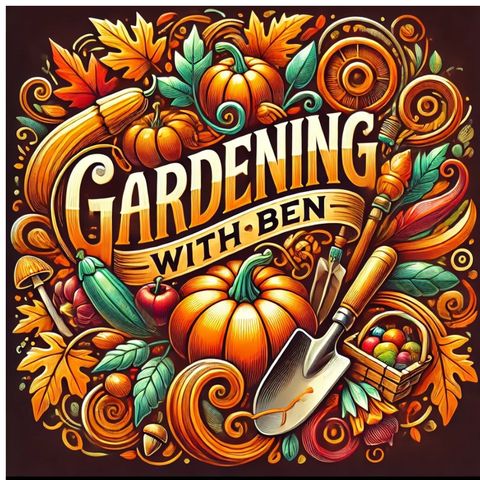"An Allotment Day: Gardening Insights and Adventures"

Download and listen anywhere
Download your favorite episodes and enjoy them, wherever you are! Sign up or log in now to access offline listening.
Description
Welcome to "An Allotment Day: Gardening Insights and Adventures," your ultimate guide to spending a productive and enjoyable day at the allotment. This episode is packed with expert advice, practical...
show moreStarting Your Day at the Allotment
**1. Morning Walkthrough:** Begin your day with a thorough walkthrough of your allotment. This is the perfect time to observe the overall health of your plants, check for signs of pests or diseases, and identify areas that need attention. Taking note of these details helps you prioritize tasks and plan your day effectively.
**2. Soil Preparation:** Healthy soil is the foundation of a productive garden. Before planting or sowing, ensure your soil is well-prepared. Add compost or well-rotted manure to enrich the soil and improve its structure. Testing your soil’s pH and nutrient levels can help you make necessary adjustments to provide the best growing conditions for your plants.
Essential Gardening Tasks
**1. Planting and Sowing:** Depending on the season, planting and sowing are crucial tasks. In the spring and summer, focus on planting vegetables like tomatoes, cucumbers, beans, and peppers. For autumn, consider planting hardy vegetables such as kale, spinach, and winter lettuces. Proper planting techniques, such as correct spacing and depth, are essential for optimal growth.
**2. Watering:** Consistent watering is vital, especially during dry spells. Water your plants deeply and regularly to encourage strong root systems. Early morning or late evening watering minimizes evaporation and ensures your plants absorb adequate moisture. Installing a drip irrigation system can make this task more efficient.
**3. Mulching:** Apply a thick layer of organic mulch around your plants to retain soil moisture, suppress weeds, and regulate soil temperature. Organic mulches such as straw, wood chips, and compost are excellent choices. Mulching also improves soil fertility as it decomposes, providing a steady supply of nutrients.
Maintenance and Care
**1. Weeding:** Regular weeding is essential to prevent competition for nutrients and water. Remove weeds by hand or use a hoe to keep your garden beds tidy and productive. Weeds can harbor pests and diseases, so keeping them under control is crucial.
**2. Pruning and Deadheading:** Pruning helps maintain plant health and encourages new growth. Trim dead or diseased branches from shrubs and trees, and deadhead spent flowers to promote further blooming. Proper pruning techniques enhance air circulation and sunlight penetration, reducing the risk of diseases.
Pest and Disease Management
**1. Organic Pest Control:** Monitor your garden for pests and take action early. Introduce beneficial insects like ladybugs and predatory beetles to control pest populations naturally. Use organic sprays, such as neem oil, to manage common pests without harming beneficial insects.
**2. Disease Prevention:** Ensure proper spacing between plants to improve air circulation and reduce humidity levels, which can minimize disease risks. Remove and dispose of any diseased plant material promptly. Practicing crop rotation and maintaining good garden hygiene are also effective strategies.
Harvesting and Enjoying the Fruits of Your Labor
**1. Harvesting:** Regular harvesting encourages plants to produce more and prevents overripe produce from attracting pests. Learn the best techniques for picking and storing your crops to maintain their freshness and flavor. Harvesting also allows you to enjoy the fruits of your labor, whether it’s fresh vegetables for dinner or beautiful flowers for your home.
**2. Sharing Your Bounty:** Consider sharing your harvest with friends, family, or local food banks. Sharing the bounty of your allotment not only helps others but also fosters a sense of community and appreciation for homegrown produce.
Listener Questions and Success Stories
We love engaging with our listeners! In this episode, we feature your questions about gardening challenges and share success stories from fellow gardeners. Whether you need advice on specific tasks or want to celebrate your achievements, this segment is all about community and learning from each other.
Conclusion
"An Allotment Day: Gardening Insights and Adventures" is your comprehensive guide to making the most of your time at the allotment. With expert tips, practical advice, and inspiring stories, this episode will help you maintain a productive and thriving garden. Tune in, subscribe, and join us as we explore the joys and challenges of allotment gardening. Happy gardening!
Information
Copyright 2024 - Spreaker Inc. an iHeartMedia Company

Comments